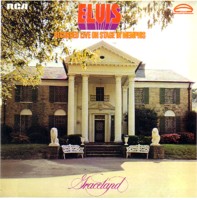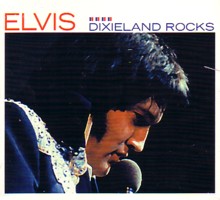Chinese
surrender to the "King of the Cats"
Beijing
and Shanghai are all shook up by a red-haired, hip-swivelling
Canadian 'Elvis,'
At
the height of the Cultural Revolution, a young Chinese woman
named Chen Shuzhen caught a glimpse of Elvis Presley in an
illicit film. It was love at first sight. For more than 30
years, she secretly nurtured the dream of seeing the American
pop idol. But throughout his lifetime, the music of the man
known to the Chinese as Mao Wang -- the King of the Cats
-- was banned by the Communist authorities.
This
weekend, at the age of 62, Chen finally fulfilled her dream.
Clutching a pair of binoculars to make sure she wouldn't miss
a single swivelling hip or curled lip, the grey-haired chemistry
engineer sat transfixed among an enthusiastic crowd of fans
in a Beijing concert hall, watching the first official Elvis
musical ever to perform in China.
"It
was worth spending a month's income on a ticket to sit here,"
she said. "I never had a chance to see him when he was alive,
but now I'm getting the chance. I feel like I've been transported
to the America of the 1970s." Almost half a century after
the first eruption of Elvis mania in North America, the King
finally arrived in Beijing this weekend. And in a slightly
surprising twist, he was Canadian.
Martin
Fontaine, the star of The Elvis Story, is a red-haired French-Canadian
rock singer who has become perhaps the world's most successful
Elvis performer. For almost a decade he has been the centrepiece
of a Quebec City production of The Elvis Story that has toured
the planet, playing to capacity crowds in France, Japan, the
United States and now China. The show generates more than
$20-million in annual tourist spending in Quebec City alone,
where it plays to 120,000 spectators every summer. Critics
have sneered at the show.
When
it played Toronto in 1997 in its English-language premiere,
the reviews were scathing. The Globe and Mail called it cheesy
and embarrassing -- an "utter failure." The Toronto Star called
it a glorified nightclub act and a bad impersonation of a
musical. Its legions of fans didn't care. Since then, the
show has gone from strength to strength.
With
a cast and crew of 24 Canadians, the production has played
hundreds of shows in Paris, Tokyo, Osaka, and even in Biloxi,
Miss. -- not far from the birthplace of the King himself.
Promoters are talking to the Quebec producers about a possible
return visit to China and more shows next year in Singapore,
Hong Kong and Thailand. In Shanghai earlier this month, the
musical played its biggest-ever venue, an 8,000-seat stadium,
where it managed to fill two-thirds of the seats.
And
in Beijing this weekend, despite minimal publicity, four performances
of The Elvis Story sold 70 to 90 per cent of the tickets at
the 1,300-seat Poly Theatre, one of the city's biggest concert
halls. Most Chinese fans, unlike those in Japan or the West,
had never heard of Elvis during his lifetime or even in the
years after his death.
None
of his albums was officially released in China until 1991.
But in China's new capitalist era, the King of the Cats is
hugely popular. His most instantly recognized song here is
Love Me Tender, popular in karaoke bars and often used in
school textbooks to teach English. Tickets for the Elvis musical
were quickly snapped up in Beijing this weekend, despite prices
of up to $170 per ticket -- far higher than in other countries.
Teenagers brought their parents to introduce them to the music.
Young female fans squealed and fought for the sweat-soaked
scarves that Fontaine tossed into the crowd. "We love you
Elvis," they screamed.
"I
feel that I'm right in the middle of something I don't quite
understand," Fontaine said in an interview yesterday. "We're
pioneers here. The crowds are getting bigger and bigger. Maybe
it's curiosity, maybe it's because we're foreign and they
think we are exotic, but the people are very excited. It's
been very satisfying." Chinese newspapers gave rave reviews
to the show. "Martin Fontaine is so much like Mao Wang, in
his makeup and costume and singing and dancing, that he could
almost be regarded as the real thing," one Beijing newspaper
wrote.
The
fans were ecstatic. "Before the show, I didn't know much about
Mao Wang, but it was a wonderful evening," said Zhou Jing,
a 22-year-old Beijing woman. "Everyone in the audience was
high. I was excited throughout the show." Karen Jiang, a 34-year-old
fan, recalled her shock when she encountered Presley's music
for the first time.
"When
I first heard about Elvis, I couldn't understand why American
music was so crazy. Compared to our Chinese music in the 1980s,
Americans such as Mao Wang were considered crazy. But I don't
think that any more. The Chinese people have become a lot
more open."
The
Elvis Story had its origins in the early 1990s as an idea
by Quebec music impresario Guy Cloutier, who had attended
dozens of Presley concerts in Las Vegas. He recruited the
artistic director Mouffe -- famed producer of Quebec rock
stars such as Roch Voisine and Robert Charlebois -- who developed
a two-hour review of 40 Elvis songs, linked by narrated film
scenes on giant television screens that trace the Presley
story from birth to death.
Fontaine,
the leader of a Montreal rock band, won the audition for the
lead role in 1994. In civilian clothes, with his spiky red
hair and boyish looks, he sometimes jokes that he resembles
Bart Simpson. But every night he transforms himself into Elvis
with a two-hour makeup session and a wig and sideburns --
which he changes four times a night, along with 16 costume
changes.
Since
1995, the 39-year-old singer has performed as Elvis for an
average of 200 nights a year, accompanied by six musicians,
four singers and an elaborately evolving stage set. The Quebec
show is the only world-touring review with the official blessing
of the Presley estate, allowing it to use television and film
footage of the singer.
Travelling
to China, however, was a tough challenge. Language is one
problem: The narration has to be translated into Chinese in
scrolling text on either side of the stage. A greater obstacle
is the no-nonsense attitude of China's theatre owners, who
imposed strict rules that required him to stay on stage and
out of the audience. He opted to defy the rules, despite threats
of police action. "Come on and arrest me," he mused as he
leaped into the audience to shake hands and kiss the girls.
Chinese
audiences are notoriously reserved and cautious, and Fontaine
has had to work hard to overcome the emotional barriers. "It's
a little slower here," he says. "It takes time to convince
them. I talk to them, I tease them, I ask them to sing. I
make them an accomplice. I give them permission." While most
of his audiences are unaware of his Canadian identity, Fontaine
sees it as a natural advantage.
"Look
at Cirque du Soleil -- they reinvented show business," he
notes. "We can do so much with so little. We have a big imagination.
We're not too tacky or too flashy like the Americans. We try
to put more feeling into it -- because we don't have the money.
We have nothing to lose."
Despite
his financial success, Fontaine might not be touring as Elvis
much longer. He is committed to another 46 shows in Paris
next spring, but by next fall he is considering a completely
new show that would liberate him from Elvis.
"I'm already working on it," he says. "I'm going to explore
my musical influences, from blues to soul and R&B music."
(News,
Source: GlobeandMail.com)
|







